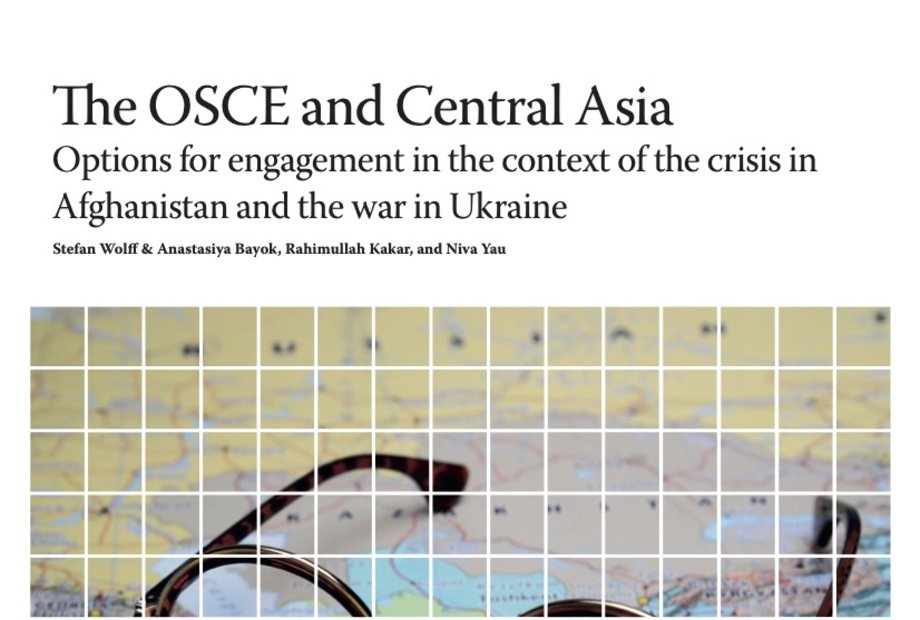A new report by the OSCE Network of Think Tanks and Academic Institutions looks at the OSCE’s future options for engagement with its Central Asian participating States. It examines the opportunities and challenges that the OSCE faces in developing its engagement with Central Asia in the context of the crisis in Afghanistan and the war in Ukraine. Central Asia is becoming an increasingly important area for the OSCE: the region has been beset by instability in 2022, it is heavily exposed to the effects of climate change, and it is at the centre of major transport, trade, and energy connections. The report is co-authored by Anastasiya Bayok, Rahimullah Kakar, Stefan Wolff, and Niva Yau.
According to Stefan Wolff, the lead author of the report: “Three trends, accelerated by the Russian war in Ukraine, characterise the changing geopolitical dynamics in Central Asia: Russia’s declining influence in the region, China’s reluctance to step decisively into this void, and the slowly but unevenly increasing ability of the Central Asian countries to provide an alternative framework for managing regional stability.” The report concludes that the current level of OSCE engagement provides a basis for further engagement with the Central Asian participating States. Primarily through bilateral programmes supporting individual participating States in managing Afghanistan-related risks to security and stability, including preventing and countering violent extremism and terrorism and countering terrorist financing. At the same time, this engagement does not reflect the full potential that the OSCE has, nor the expectations of its Central Asian participating States who value the OSCE as an attractive and strategically important forum of multilateral engagement.
Find all OSCE Network publications here
The report is funded by the German Federal Foreign Office.





